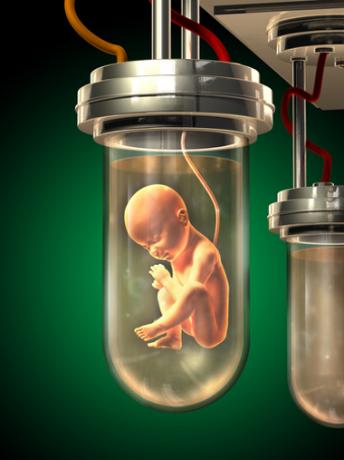From the second half of the 20th century until now, with the great development of research related todecoding the genetic map of human beingsand the consequent use of genetic manipulation technology that ensues, some questions began to impose themselves on humanity: What are the ethical limits of the relationship between human nature and technology? there really is a "human nature" that cannot be changed? we can have a future “post-human”, that is: we can change our nature in such a way, through the biotechnology, to the point where we fully emancipate ourselves from our natural limitations, such as illness and old age? Finally, what's dangerous about all this? And why is this topic interesting to history? Let's start, first, by asking what is the "human nature".
The sages of antiquity, such as the tragic poets and Greek philosophers or the prophets and apostles of the Jewish Christian tradition (to stay with the thought that formed the Western tradition), always sought to define Man (or the human race) as a being who was divided between animality and rationality. Thus, Man had as his main task the search for a balance between these two instances. This presupposed the balance between passions and rational action, as well as between instincts and virtues, that is, it was necessary to equate our merely natural characteristics (from a strictly biological point of view) with our characteristics that differed from the mere nature. By “human nature” was meant this balance.
This understanding of human nature came from the vast experience that ancient societies had accumulated. for centuries, especially the experience of suffering with natural disasters, epidemics, wars etc. All this made evident the vulnerable character of the human being and it was necessary, therefore, to be guided by virtues such as prudence, courage and temperance.
From the Modern Age, with the advent of science and technology, many problems related to the experience of suffering, mentioned above, could be progressively solved. Scientific and technological progress, which enabled Man to understand natural phenomena and, consequently, the domain of nature brought comfort and security to the civilizations that became developed; thus, diseases were eradicated, cities were planned with a view to protecting against the elements and natural catastrophes, etc. However, all this progress has also brought to man a new perspective on human nature.
If the experience of ancient civilizations inclined Man to virtues, in modernity progress starts to incline him to excessive actions. From modernity to the present day, there is a desire to emancipate human beings from the limitations imposed by nature. This emancipation would have the domain of technology as its agent of transformation. There has been, above all from the nineteenth century to the present, a dangerous belief that humanity can be improved by technology; that its nature can be overcome by genetic engineering and biotechnology techniques.
A famous example of this belief is the biologist Julien Huxley, the first director of UNESCO, who believed in the fact that human beings are capable of transcending their own nature, through technique. He developed the idea of “trans-humanism”. In the nineteenth century, the German philosopher Nietzsche already advocated the rise of a “Superman” that would surpass the man until then understood.
Ironically, Julien Huxley's brother, the writer Aldous Huxley, conceived a science fiction novel in which he tried exactly to expose the dangers that such an idea of surpassing human nature could drive. The book is entitled "Admirable new world" and its theme is genetic engineering and the creation of human beings in laboratories, perfectly planned through biotechnological manipulation. These are dangers that relate to eugenics, that is, with the desire to create the perfect being, resistant to any kind of suffering and without congenital defects of any kind. This idea “enchanted” political leaders such as Adolf Hitler, who sought the betterment of the white race through science and technology.

Genetic engineering can lead humanity to an uncertain fate similar to science fiction
In the early 2000s, a philosopher named Francis Fukuyama published a book titled "Our Post-Human Future", in which he says that what is most urgent in contemporaneity is the question of the future of human nature, that is, the raison d'être of the biological existence of human beings. All the achievements that biotechnology and genetic engineering have achieved so far can bear good fruit for human destiny. But they can also provide us with a future similar to Aldous Huxley's science fiction.
History is interested in this crossroads at which humanity finds itself. Mainly because it, History, organizes the memory of the vast experience that humanity has gone through and, based on that, can offer considerations about the future of men. The urge to get rid of any and all problems, to free himself from responsibilities that make him mature and develop his virtues, can lead Man to barbarism.
By Me. Cláudio Fernandes
Source: Brazil School - https://brasilescola.uol.com.br/historiag/natureza-humana-tecnologia.htm

